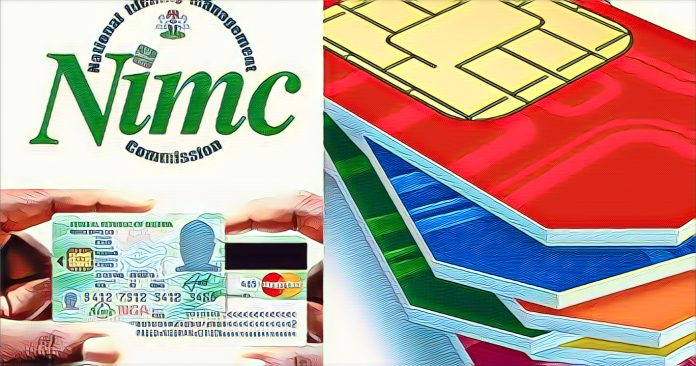The Nigerian government has issued a final warning to millions of mobile phone users who have not linked their National Identity Numbers (NIN) with their SIM cards, saying they face being cut off from communication services by the end of February.
According to the Nigerian Communications Commission (NCC), the telecoms regulator, about 12.3 million active SIM cards are yet to be linked with their owners’ NINs as of September 2023 and will be blocked by their operators if they fail to comply with the directive by February 28, 2024.
The NCC said the NIN-SIM linkage policy was aimed at enhancing national security, economic inclusion, and access to government services by creating a reliable and sustainable identity management system.
The policy, which was announced in December 2020, has been extended several times to allow more Nigerians to enroll for their NINs and submit them to their network providers. However, the government has insisted that there will be no further extension after the current deadline.
The NIN is a unique 11-digit number issued by the National Identity Management Commission (NIMC) to citizens and legal residents after capturing their biometric and biographic data. It is mandatory for accessing various services such as banking, taxation, voting, travel, and education.
However, many Nigerians have faced challenges in obtaining their NINs due to inadequate enrolment centers, long queues, extortion, and technical glitches. Some have also expressed concerns over the privacy and security of their data, especially in the wake of frequent cyberattacks and identity theft.
The NIN-SIM linkage policy has also sparked criticism from some civil society groups, who have argued that it violates the fundamental rights of Nigerians to freedom of expression, access to information, and participation in public affairs. They have also questioned the legality and effectiveness of the policy in addressing the security challenges facing the country.
According to the Association of Licensed Telecommunications Operators of Nigeria (ALTON), the industry body representing the telecom operators, the policy has hurt the sector’s growth and performance. ALTON said the suspension of new SIM sales and activations since December 2020 had resulted in a loss of over 10 million subscribers and a decline in revenue and investment.
ALTON also said the policy had affected the quality of service and network coverage, as well as the implementation of the National Broadband Plan, which aims to achieve 70 percent broadband penetration by 2025.
Despite these challenges, ALTON said it remained committed to supporting the government’s objective of building a digital economy and a safer society. It appealed to subscribers to enroll for their NINs or submit their NINs through the appropriate channels to avoid service disruption.
The government, on its part, has assured Nigerians that it is taking steps to address the issues and improve the NIN enrolment and verification process. It said it had licensed over 200 private agents and 173 institutions to facilitate NIN enrolment across the country. It also said it had launched a mobile app and a USSD code to enable subscribers to link their NINs with their SIMs online.
The government also said it had embarked on a sensitization campaign to educate Nigerians on the benefits and procedures of the NIN-SIM linkage policy. It urged Nigerians to cooperate and comply with the policy, saying it was in the best interest of the nation and its citizens.
As the deadline draws near, millions of Nigerians are faced with a dilemma: to link their NINs with their SIMs and risk exposing their data, or to lose their phone services and miss out on vital communication and opportunities. The choice is theirs, but the clock is ticking.
Source: Business Day



